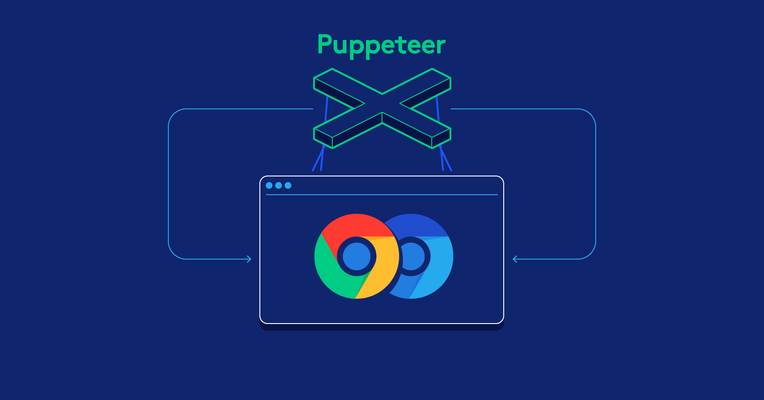Hire Freelance Automation Developers
Johnmicah Potter
Bank of America, Anthem, and Lowe’s are just a few of the companies that Johnmicah has worked at. He has 13 years of experience building web applications from not only both the front and back ends but also the platform and infrastructure sides. Johnmicah is passionate about performance, automation, and containerization. Johnmicah is also capable of fitting into and improving an existing environment or building a new one from the ground up.
Show MoreJay Vercellone
Jay is a computer engineer with a strong background in high-performance applications, distributed systems, automation, and production readiness. He also has experience in embedded systems and digital design, both on the technical side and as a team leader. With excellent communication and business skills and extensive experience working with both local and remote teams, he is passionate about exploiting a team's full potential while increasing their work/life balance and overall joy.
Show MorePankaj Pratim Sarmah
Pankaj is a QA engineer and leader with more than 11 years of experience, specializing in manual, automated, and performance tests. He develops and implements E2E QA testing strategies, processes, and workflows from scratch, including manual and automated test plans for performance, functional, unit, API, regression, and integration testing. Pankaj adds value through the entire SDLC to ensure high-quality code and products and helps eliminate bottlenecks and bugs in production.
Show MoreVaishnavi A K
Vaishnavi is a senior QA engineer with over eight years of experience working with startups and corporate organizations at all levels of testing and automation. Vaishnavi's work encompasses performance, functional, integration, system, and user acceptance testing while following Agile (Scrum and Kanban) methodologies in the software development process.
Show MoreH. Özgür Çağdaş
Özgür is a seasoned software developer and hardworking professional who enjoys taking up engineering challenges, constantly pushing his skills in different areas, and seeing the delivered solutions making a difference. He thrives in team environments and profits greatly from observing and learning from colleagues. Özgür also likes sharing his knowledge and experience, making the most of open-minded discussions and interactions that can benefit all parties involved in the learning experience.
Show MoreKamil Nguyen Van
Kamil is a software engineer with 10+ years of experience in startups and scale-ups. His specialty is full-stack development with React, JavaScript, TypeScript, and Node.js, but he feels comfortable in many other stacks. As a person who had his own startup, he can work within software engineering and product development boundaries. Being able to speak 10 foreign languages (able to work in 7) and having worked in many types of companies, Kamil adapts swiftly to any company culture.
Show MoreMaxime Niankouri
Maxime is a polyvalent engineer focused on software with in-depth knowledge of electrical design. His semi-conductor industry expertise helped Texas Instruments and Infineon deliver highly optimized products and processes, including the integration of machine learning in a custom EDA environment. Maxine is known for developing ingenious ways of automating processes, strategically revising methodologies, and is quick to help colleagues along the way.
Show MoreDavid Sumsky
David is a cloud enthusiast, enabling organizations to develop on AWS successfully. He holds AWS Solutions Architect Professional and AWS Certified Security Specialty certifications. He specializes in architecting secure, highly available, scalable, and cost-effective cloud solutions. David works closely with clients to define ideas and deliver cloud-ready solutions with a focus on DevOps, CI/CD, and automation tooling.
Show MoreChris Ding
Chris is a lead QA engineer currently based in Japan. He has worked with web, mobile, and API automation, among others. He has experience working in both large organizations and small startups with a proven record of creating fast and reliable test automation frameworks. Outside of automation QA work, he has also built QA processes from the ground up and led QA teams of seven members.
Show MoreIoseb Kuprashvili
Ioseb is a systems architect with a proven track record of designing and delivering cost-effective, reliable, secure, and high-performance IT infrastructures to solve complex business problems. He is a CKA certified Kubernetes expert able to design, build, and maintain clusters on bare-metal infrastructure and cloud. Ioseb is also well-versed in planning, designing, implementing, and maintaining system applications in the AWS cloud.
Show MoreAkash Bhati
Akash is a diligent Salesforce developer with a strong background in developing and enhancing the Salesforce and Force.com platforms. He has expert-level skills with the Force.com platform, including Apex, VisualForce, workflows, automation, Salesforce APIs, SOQL, Lightning Components, Lightning UI, the Lightning Design System, Lightning Migration, and LWC. Akash excels at leading integrations, migrations, and real-time and batch best practices.
Show MoreDiscover More Automation Developers in the Toptal Network
Start Hiring































